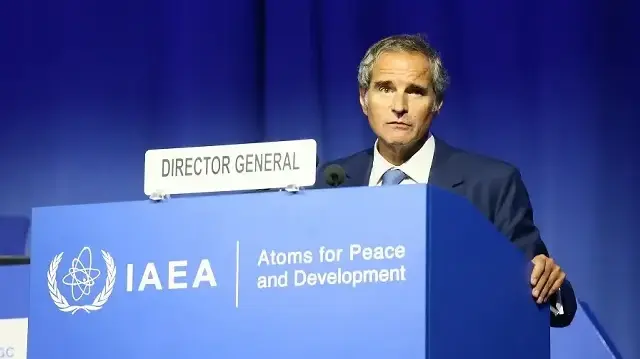IAEA chief: no evidence Iran is developing nuclear arms

The head of the UN's nuclear watchdog, Rafael Grossi, has stated there is no evidence Iran is developing nuclear weapons. While acknowledging Tehran's reduced cooperation with inspectors, Grossi confirmed Iran remains committed to the Non-Proliferation Treaty. The comments come amid ongoing tensions with Western powers over Iran's nuclear activities.
The director general of the International Atomic Energy Agency (IAEA), Rafael Grossi, has unequivocally stated that the agency has found no evidence indicating Iran is developing nuclear weapons. Speaking at UN Headquarters in New York, Grossi addressed the ongoing scrutiny of Iran's nuclear program and its cooperation with the global watchdog, reinforcing Iran's stance within the non-proliferation framework.
Tensions and Commitment to the NPT
Grossi acknowledged a pattern where Iran reduces its cooperation with the IAEA following critical resolutions from international bodies. He expressed regret over this dynamic but highlighted that Iranian officials have consistently reaffirmed their commitment to the Non-Pliferation Treaty (NPT), a move he described as "a very wise step." This follows the decision by France, Germany, and the UK to activate a sanctions "snapback" mechanism against Iran.
Inspections and Regional Context
The IAEA chief also referenced the practical challenges of monitoring, noting that inspectors were withdrawn from Iran for safety reasons during a period of heightened regional tensions. Since then, he has been actively working to rebuild the inspection framework and maintains frequent contact with Iranian officials, including the Foreign Minister. On the core issue, Grossi was direct, citing a recent IAEA report: "No, they are not, and they were not. I want to be very clear on this." He added that the agency sees nothing suggesting substantive work on a nuclear weapon.
The Underlying Dispute
The situation stems from the collapse of the 2015 nuclear deal (JCPOA) after the US's unilateral withdrawal in 2018. While Iran insists its nuclear program is purely for peaceful purposes like power generation, nations including the US and Israel accuse it of seeking weapons capabilities. The activation of the snapback mechanism by European powers further complicates diplomatic efforts surrounding Iran's nuclear agenda.
Reklam yükleniyor...
Reklam yükleniyor...







Comments you share on our site are a valuable resource for other users. Please be respectful of different opinions and other users. Avoid using rude, aggressive, derogatory, or discriminatory language.